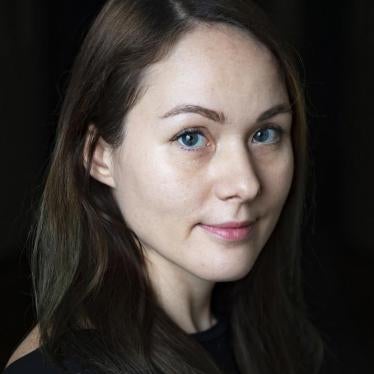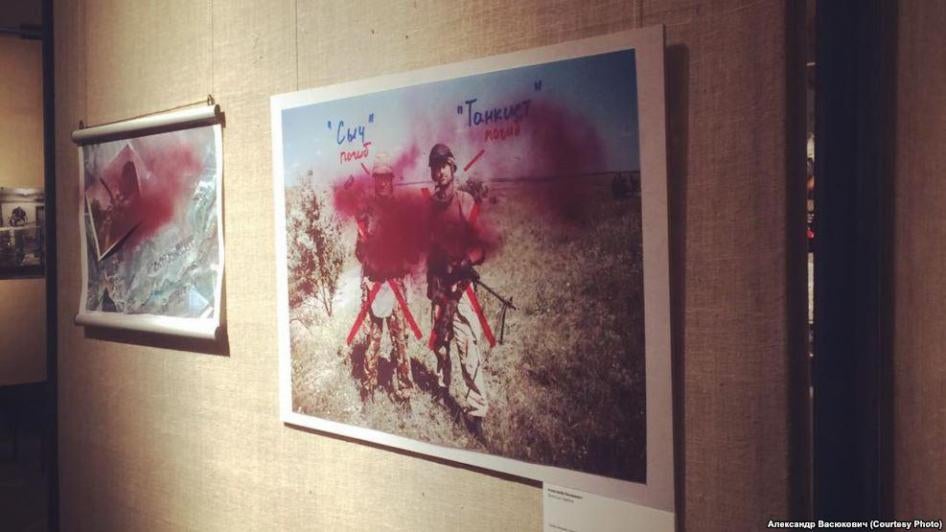Just hours after it had opened, a man vandalized a photography exhibition in Moscow last week. He sprayed several photographs, of Ukrainian soldiers fighting in eastern Ukraine, with red paint, shouting that they had killed women and children. The photos were among many images on a wide variety of themes, from orphans in Russia to street crime in Honduras.
The exhibit is at the Sakharov Centre, a wonderful venue in Moscow that hosts exhibitions, lectures, and discussions about human rights and social issues that the mainstream media largely avoids. It is one of the few remaining places in Moscow where thinkers, activists, and the public can debate controversial topics – because in today’s Russia such discourse is risky. For instance, diverging from the official narrative on the seizure of Crimea or the war in Ukraine – in a media interview or on your Facebook page – can land you in a psychiatric facility or in jail.
The Sakharov Center did not replace the damaged photographs. Instead staff took them down and covered the empty spaces with white sheets of paper describing the incident and reminding visitors that hatred and destruction are no substitute for open debate, no matter how divisive and painful the subject.
But the next day several men calling themselves “cossacks” and “rebels” came to the center and stormed around, tearing down the sheets of paper where the photographs had been. One of them held a jar with red liquid marked “Blood of Donbass children.” They wreaked havoc and yelled abuse at the staff, threatening that they would be back. Conveniently, camera crews from several pro-Kremlin television channels were at the scene before both incidents took place, ready to film. The cameras were rolling as the men hurled insults at the center’s director, Sergei Lukashevskiy, with accusations of supporting “fascists.” The footage was aired on several nationwide television stations. The police did question Lukashevskiy after the incidents, but he told me they seemed more interested in what the centre does and what the exhibition was about.
These were not isolated incidents, and police investigations in cases like these are rarely effective, giving little hope for justice or protection. While such violent events are both frightening and dangerous, so are the vicious smear campaigns against human rights activists and government critics that have been growing steadily since the Kremlin launched its anti “foreign agents” campaign” in 2012.
As long as the Kremlin continues to demonize and marginalize critical voices, attacks like these will continue and, in turn, lead to ever more violence.









